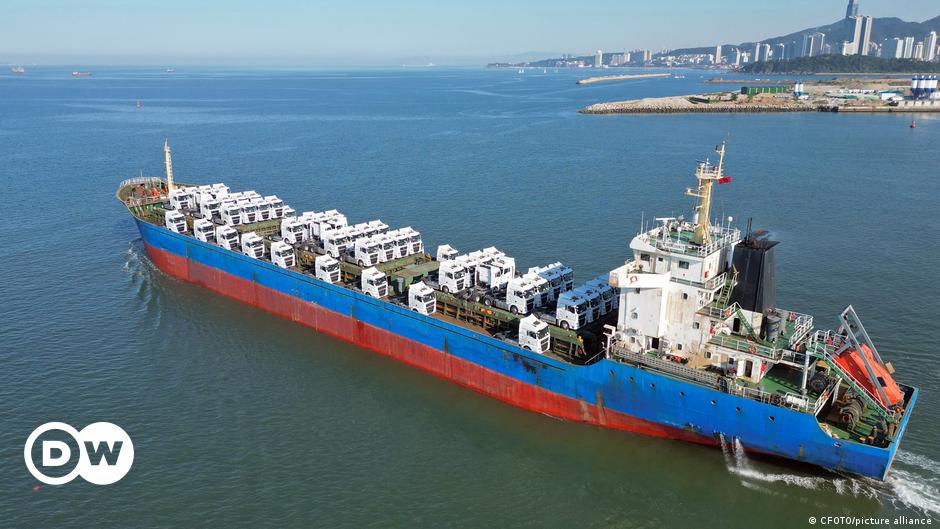China threw Russia an economic lifebelt after the West hit Moscow with sanctions over the war in Ukraine. As Putin prepares to visit Beijing this week to promote even closer ties, Washington is ramping up the pressure.
Days after Russia launched its full-scale invasion of Ukraine in February 2022, the West foisted deep sanctions on Moscow in the hopes of hurting Russia’s ability to finance the conflict. The sanctions targeted politicians and oligarchs, froze foreign reserves, curbed access to Western technology and cut Russian banks off from the Swift international payment messaging system.
The financial penalties were widely expected to bring Russia to its knees. Initially, the ruble plummeted in value and the Russian economy contracted by 1.2% in 2022. Last year, however, Russia’s growth outpaced both the United States and Europe at 3.6%. The country is on course for another strong year in 2024.
Much of that growth came in the way of trade with China, which acted as a counterweight to the West by refusing to impose sanctions and becoming a major buyer of Russian energy. Despite pressure from the US and the European Union, the two countries have formed a deeper alliance since the war started.



A decade before the country was run by Russian puppet Viktor Yanukovych. Any western economic or military assistance would have helped Russia continue to own Ukraine politically.
The hope was, and there was a lot of evidence it was working, that engaging Russia economically would act as a force against Russian aggression because no one could imagine Russia throwing away their access and economic prosperity by openly invading another country. Also, Ukraine, immediately following the exit of Yanukovych in 2014 had a lot of corruption in government with lots of Russian backed political appointees still there.
At the time it didn’t look like a country that could or would defend itself from Russia even if they were invaded. The taking of Crimea with almost no push-back from Ukraine, and Ukrainian military officers marking their weapons of war to Russia in exchange for Russian military command reinforced this idea.
Who is “they” and “nipping” it sounds like you’re suggesting would be to flood the (at the time) half corrupt country half Russian owned country with Western weapons to untrained people. 2014 was also when the USA was fighting two wars in Iraq and Afghanistan. Trying in Afghanistan to build a domestic army to defend their government against the Taliban.
You’re looking at Ukraine as the Zelenskyy-era version which has this hope and promise of being a less corrupt place and fighting Russia. Zelenskyy didn’t even take office until 2019. Even then it took a couple of years to learn that he was going to be different than the previous leaders.
I say all of this, and I hugely support Ukraine today! I want more support for them from my government and others, but that doesn’t change what Ukraine was 10 or more years ago.
The Western powers, but mostly Western Europe. The Baltic states and Poland were very wary of Russia and there multiple news articles of them fearing a Russian invasion (Lithuania 2017).
Gearing up NATO for a possible invasion to actually increase military spending for secure Baltic borders, stockpiling arms and weapons, as well as gradually much harsher sanctions for Russia together with increasing economic distancing - aka a strong response, could’ve shown Russia who not to trifle with. The former USSR states said multiple times that Russia wouldn’t recognize much apart force.
The Nord Stream pipeline was beyond idiotic. After signing the Paris agreement in 2015, agreeing to get more gas into the EU and from Russia of all parties, was just dumb. The dependency created was more on European side than Russian side.
Russia started testing its own internet and tried producing its own chips for Russian “independence”, but after the annexation how could that not be interpreted as preparation for disconnection from Western tech?
Probably the situation was complex back then and even more complex today, but the reality is that to many people the attack on Ukraine was not a surprise but a matter of time.